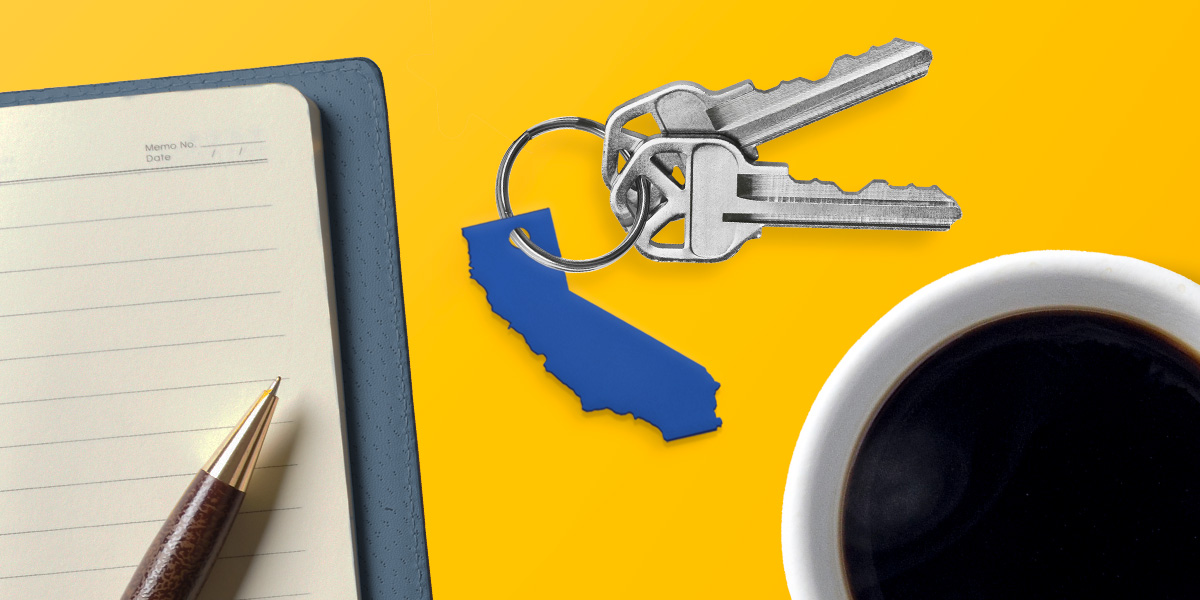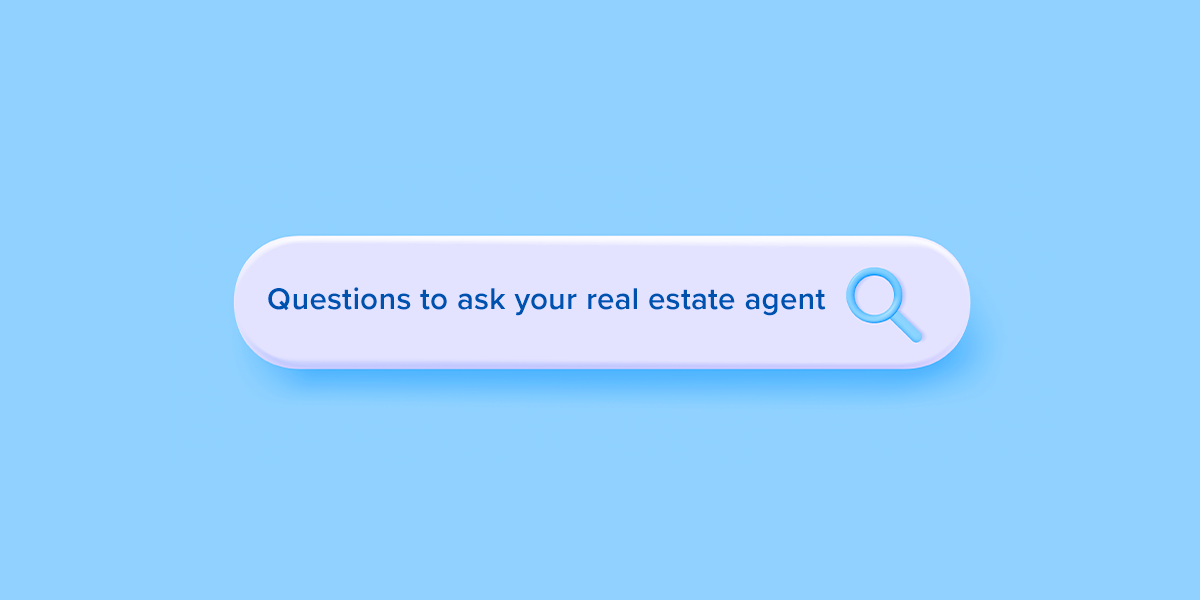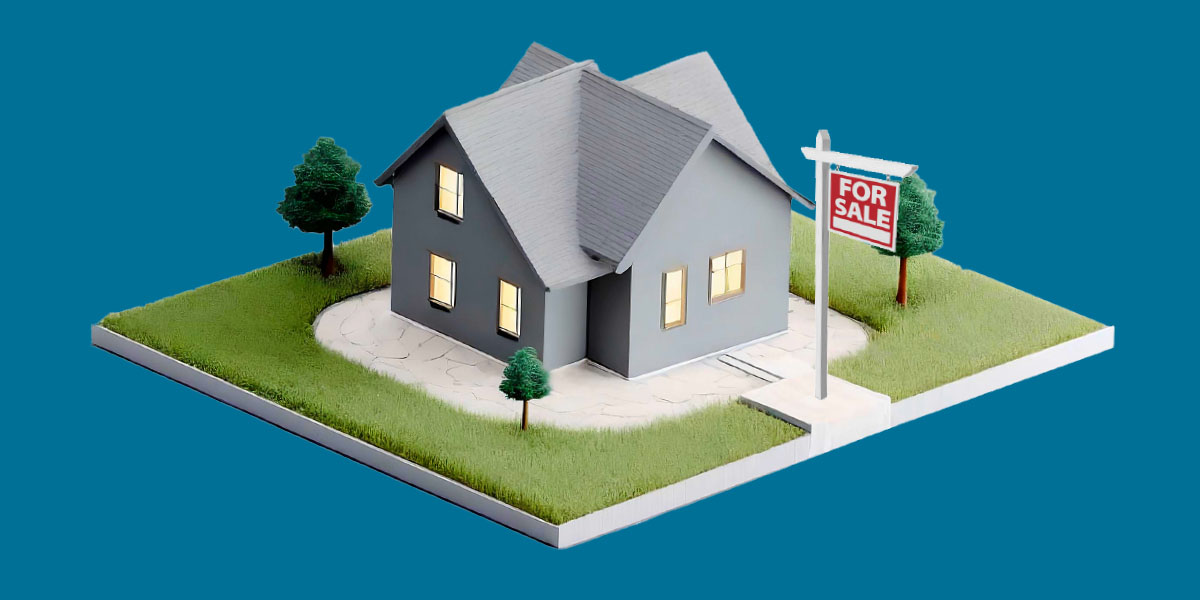-
Personal Banking -
Insights
Questions to Ask a Mortgage Lender
From the moment you start thinking about purchasing a home, you'll likely have a lot of questions about the process. Even if you believe that you understand credit scores and how they are calculated, how much money you need for a down payment and how mortgages work, beginning the homebuying process can still be intimidating.
After all, a home is the largest asset most Americans will ever own and likely their largest liability as well, assuming they have a mortgage. Homeownership is also a big part of the "American dream" and the primary source of generational wealth for families.
That's why it's important to know what questions to ask before you get started looking for a house — and a mortgage. Since most mortgage terms last for decades, asking the questions below can help you start this major financial journey on the right foot.
What Are Credit Qualifications?
Housing lenders often use FICO scores as one important way to qualify potential borrowers. This system rates a person's creditworthiness — or how likely they are to be able to repay a loan — on a scale of 300 to 850. The higher your credit score, the more favorably a lender will consider your loan application.
Every lender has unique credit score requirements, but many of them require a score of around 620 or higher to secure a conventional home loan.
Talking to your bank or potential home lender about your credit score can help you determine whether you should work on improving it before you begin looking to buy a home. Lenders often give lower interest rates to applicants with high credit scores, because their loans are considered less risky. If this is not the case for you, you may want to wait until your score is higher in order to increase your chances of getting a mortgage and saving money on your monthly mortgage payment.
Not sure what your credit score is? You can find out how to get it and obtain tips on how to improve it from the Consumer Financial Protection Bureau.
Can I Get Pre-approved for a Mortgage?
Getting pre-approved for a mortgage is a smart step to take before stepping foot inside an open house or poring over online listings for homes you might want to buy.
The process for a mortgage pre-approval looks at your assets, credit score and income to help determine what type of loans could be a good fit for you. It also gives you an idea of what homes are in your budget.
Will the Pre-Approval Process Require a “Hard” Credit Check?
Ask your lender if their pre-approval process requires a "hard" credit check, as it very well may.
A hard credit check occurs when potential lenders look up your credit score when you are applying to borrow for large purchases such as autos, college tuition or homes. These hard credit checks will probably cause your credit score to drop by a few points, so it's important to be aware of them.
Knowing when a credit check will happen is important because it opens a 45-day window for you to get pre-approvals from other lenders. This is because multiple checks by different housing lenders are treated as a single inquiry for 45 days.
If you aren't ready to do a hard credit check, you might opt for pre-qualification, a step before the pre-approval process that can help you get a basic idea of how much house you can afford.
However, a pre-qualification won’t be as accurate as a pre-approval because less financial scrutiny is required and your credit score may not be pulled as part of the process.
What Are the Requirements for a Down Payment?
Lenders don't usually have a hard-and-fast requirement about the amount of your down payment. Instead, you should work with your lender to decide what amount is possible for you and best fits your financial situation and your goals.
For some buyers, a 20% down payment is the best choice. For other buyers, a much smaller down payment may be easier to manage and will still facilitate their dream of homeownership.
What Down Payment Assistance Programs Are Available?
In some instances, a lender might refer you to local down payment assistance programs to help you get started on the mortgage process.
There are a variety of down payment assistance programs designed to make the homebuying process more accessible to first-time and lower-income buyers.
These programs might provide benefits like cash grants, low interest rate loans or even tax incentives to help homebuyers afford a mortgage. Some programs are specific to first-time homebuyers while others are offered as benefits for veterans, specific groups of people, or specific homes in certain geographies.
Before signing up for a down payment assistance program, make sure to do your due diligence and ensure that the program is legitimate and offered through an established agency or lender. Real estate scams are unfortunately all too common and often target first-time homebuyers who are less familiar with the mortgage process.
Researching down payment assistance programs in the area you plan to purchase is beneficial. It’s also crucial to find out if the lender you’re working with accepts or works with the program you intend to use.
Am I Considered a First-time Homebuyer?
While the definition of a first-time homebuyer might seem obvious, there are stipulations that can help you qualify for first-time homebuyer programs, even if this is not your first time purchasing a home.
According to the U.S. Department of Housing and Urban Development, a first-time homebuyer is defined as:
- An individual who has had no ownership in a principal residence during the three-year period ending on the date of a property purchase. Couples can qualify for this definition even if only one spouse meets the requirement.
- A single parent who has only owned a home with a former spouse while married.
- An individual whose financial situation changes after separating from a spouse, even if they previously owned a house together.
- An individual who has only owned a principal residence that is not affixed to a permanent foundation, such as a mobile home.
- An individual who has only owned a property that was not in compliance with state, local or model building codes and that could not be brought into compliance for less than the cost of constructing a permanent structure.
What Types of Mortgages Are Offered?
There are various types of mortgages that offer different terms and guidelines based on your credit score, finances and budget. Make sure your lender offers the type of loan you want to secure.
Here are common types of mortgages:
- Conventional loan
- FHA loan
- VA loan
- Jumbo loan
- USDA loan
Additionally, there are fixed-rate and adjustable-rate loans. As the name suggests, a fixed-rate loan maintains the same interest rate throughout its existence.
An adjustable-rate mortgage — also known as an ARM — can have an interest rate that lowers or increases over time, based on the market. An ARM can help secure a lower interest rate at the start of a loan, but carries the risk of increasing over time.
How Is Your Mortgage Payment Determined?
Once you have been through the application or pre-approval process, you will have a better understanding of what your payment will look like based on your mortgage's principal, interest rate, insurance, taxes and down payment amount. The final monthly payment amount will be determined during the homebuying process.
How Is Your Interest Rate Determined?
Lenders base their interest rates on many factors, including the benchmark rate set by the U.S. Federal Reserve. From there, a variety of factors determine the interest rate on individual loans. When talking to a lender, make sure to note what rates they are currently offering. Rates will vary based on the market and the lender, and even a small difference can make a big impact on your monthly payment and household budget.
Lenders typically offer rates based on your credit score, down payment amount — which influences your loan-to-value ratio — and whether the loan you seek will be for a primary residence or a secondary property.
Should You Pay Mortgage Points?
Mortgage points are fees you can pay your lender to lower your interest rate. This may be referred to as "buying down" your rate. When interest rates are high, they can be one way to lower your mortgage payment. However you should be aware that paying points will increase your closing costs, sometimes substantially.
Don't mix up mortgage points with origination points, or fees that a lender charges to create, review and process a loan. Unlike mortgage points, paying origination points will not affect your interest rate.
What Is a Loan Term?
A mortgage's loan term is the amount of time you'll have to pay it off. One of the most common loan terms — especially for first-time homebuyers — is 30 years. However, some lenders may offer loan terms of 10, 15 or 20 years.
Are Mortgage Rate Locks Offered?
Be sure to ask if there are any fees associated with locking a rate with your lender.
Since interest rates fluctuate frequently, some lenders allow potential homebuyers to "lock" a rate for a specified amount of time after they've applied for a loan. Many interest rate locks last for 15 to 60 days, meaning that your mortgage rate won't change during that time even if broader interest rates increase.
While a mortgage rate lock can be a wise move, it isn't without potential risk. Locking in your rate may mean that you are stuck with a higher rate if rates decrease before you close your loan.
How Much Are Closing Costs?
Closing costs are fees that are paid to lenders and third parties (such as property appraisers and insurance companies) for their services. Understanding your closing costs can help avoid any unexpected costs as you are finalizing your mortgage.
Who Will Service Your Loan?
A mortgage servicer handles tasks such as sending your mortgage statements, processing your monthly payments, managing any escrow accounts and other administrative work over your loan term. Sometimes your mortgage lender will service your loan, but in other cases a third-party company will act as the loan servicer.
Understanding who services your loan will help you know who to contact should you have any questions after closing on your mortgage.
Discover More About Homebuying
Buying a home is a major financial decision that can feel overwhelming, especially for first-time homebuyers. To educate yourself and gain some confidence, visit our homebuyer's hub and read more articles about budgeting for a home, steps to follow to buy a home, how mortgages work and much more.
This article is for general information and education only. It is provided as a courtesy to the clients and friends of City National Bank (City National). City National does not warrant that it is accurate or complete. Opinions expressed and estimates or projections given are those of the authors or persons quoted as of the date of the article with no obligation to update or notify of inaccuracy or change. This article may not be reproduced, distributed or further published by any person without the written consent of City National. Please cite source when quoting.
City National, its managed affiliates and subsidiaries, as a matter of policy, do not give tax, accounting, regulatory, or legal advice, and any information provided should not be construed as such. Rules in the areas of law, tax, and accounting are subject to change and open to varying interpretations. Any strategies discussed in this document were not intended to be used, and cannot be used for the purpose of avoiding any tax penalties that may be imposed. You should consult with your other advisors on the tax, accounting and legal implications of actions you may take based on any strategies or information presented taking into account your own particular circumstances.
Loans and lines of credit are subject to credit and property approval. Additional terms and conditions apply. Not all applicants will qualify. Home equity lines of credit are not available in Texas.





